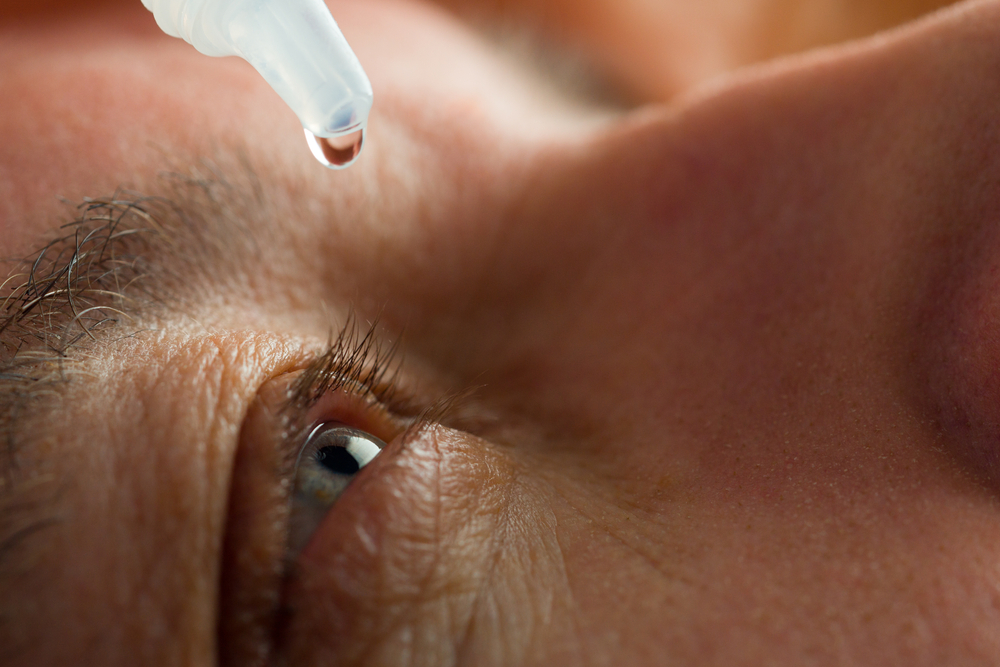Nearly 125 million Americans will use artificial tears or eye drops in 2024. Most people think nothing of stopping by the drugstore to grab a bottle when their eyes are dry, itchy, or irritated. And because these products must be sterile (free from contamination and germs) and stable (able to maintain their properties over time), health complications have been extremely rare.
That changed in January 2023, when the CDC advised the public to stop using a particular brand of artificial tears, EzriCare, due to an investigation into possible bacterial infections linked to the products.
Within a few months, 81 patients were confirmed infected with a rare and highly drug-resistant bacteria, Pseudomonas aeruginosa. Fourteen were permanently blinded, four lost an eyeball, and four died.
The FDA recalled EzriCare Artificial Tears and two other products from the same drugmaker – Delsam Pharma’s Artificial Tears and Artificial Ointment.
However, the recall was far too late for the patients who had already lost their vision or their lives.
Victims who were permanently injured by the tainted drops have begun filing artificial tears lawsuits against manufacturers and retailers, seeking compensation for medical bills, pain and suffering, lost wages, and more.
What Are Artificial Tears?
Artificial tears work by adding to either the aqueous (water) or oily (lipid) part of your tears, which, together with mucus, form a protective “tear film.” People use artificial tears for eye strain from fatigue or too much screen time, take certain drugs for allergies or depression, live in windy, smoky locations, or have decreased moisture in the eyes from aging.
An eye infection from contaminated tears will present similar symptoms, along with discharge from the eye, pain or redness, and increased sensitivity to light. In one victim’s case, an untreated eye infection spread bacteria to the blood, which was fatal.
Which Artificial Tears Were Recalled?
EzriCare is far from the only artificial tears manufacturer forced into a recall in 2023.
In August, the FDA reported bacterial and fungal contamination in LightEyez MSM Eye Drops-Eye Repair and Dr. Berne’s MSM Drops 5% solution. Methylsulfonylmethane (MSM) is a chemical that is unapproved for use in eye drops.
In October, the FDA issued a warning about 27 kinds of generic eye drops after discovering bacteria in their manufacturing facility. These products were sold at CVS, Target, Rite Aid, and Walmart and have been pulled from shelves.
A month later, Cardinal Health and Harvard Drug Group recalled six Leader brands and two Rugby Laboratories products.
Amazon also removed seven eye drop products from the site after the FDA warned that they were violating federal regulations.
So many artificial tears recalls in less than a year have prompted consumers to question their safety in general, but experts say the sudden influx of recalls in many industries is simply playing catch-up after the COVID-19 pandemic.
“There are recalls from the FDA and manufacturers all the time – it’s part of the process,” said Gary Novack, a clinical ophthalmology professor at UC Davis. “Now that the public health emergency phase of the pandemic is over, the FDA is doing more inspections, and they are finding a number of issues at manufacturing plants.”
Patients can ensure their artificial tears are safe by checking the FDA’s ongoing list of dangerous products.
Can I Still Use Artificial Tears?
Despite dozens of recalls, experts say that artificial tears are not dangerous if used safely and as instructed. All recalled products have been removed from store shelves.
Notably, prescription eye drops and OTC products from popular brands like Systane, Refresh, and Blink are safe to use. All generic/store brand drops should be avoided, as their labels don’t disclose where they are manufactured or how long they’ve been on the shelf.
All expired products, recalled or not, should be discarded.
Here are some tips on finding and using safe artificial tears.
- Determine the root cause behind your need for artificial tears; a product intended to treat an issue you don’t have will not help and may even exacerbate the problem.
- Always wash your hands before using eye drops.
- Keep the eyedropper from touching your hands and eyes.
- Make sure the drops are labeled “sterile” and not expired.
- Do not share drops with anyone.
- Always store drops in a cool, dry place.
- Stop using drops if you experience any pain, discomfort, or discharge. Report these symptoms to your doctor and the FDA, if possible.
- Avoid any OTC product labeled homeopathic or claiming to treat serious eye conditions like cataracts, macular degeneration, or glaucoma.
- Check for dangerous ingredients such as MSM and silver sulfate, which can permanently change the whites of your eyes.
- Utilize resources such as the Dry Eye Foundation’s eye drop safety tool.
Always consult your ophthalmologist for recommendations on specific products.
Artificial Tears Lawsuits
The first EzriCare lawsuit was filed against Global Pharma and Walmart in February 2023 by a 60-year-old woman who developed an infection after using their artificial tears. When antibiotics failed, she was forced into surgery and is still suffering from symptoms.
Several other artificial tears lawsuits detail plaintiffs’ partial blindness, infections that spread to other parts of the body, and other complications. There is also a class action claiming consumer fraud, seeking refunds for victims who allege that EzriCare and its distributors knew of the contamination in the artificial tears but marketed them as safe.
If you have developed eye problems after using recalled artificial tears, a qualified artificial tears injury attorney can guide you through every step of your case and help secure the highest possible compensation for your injuries. Successful lawsuits will also help future consumers by holding negligent manufacturers and distributors responsible.










